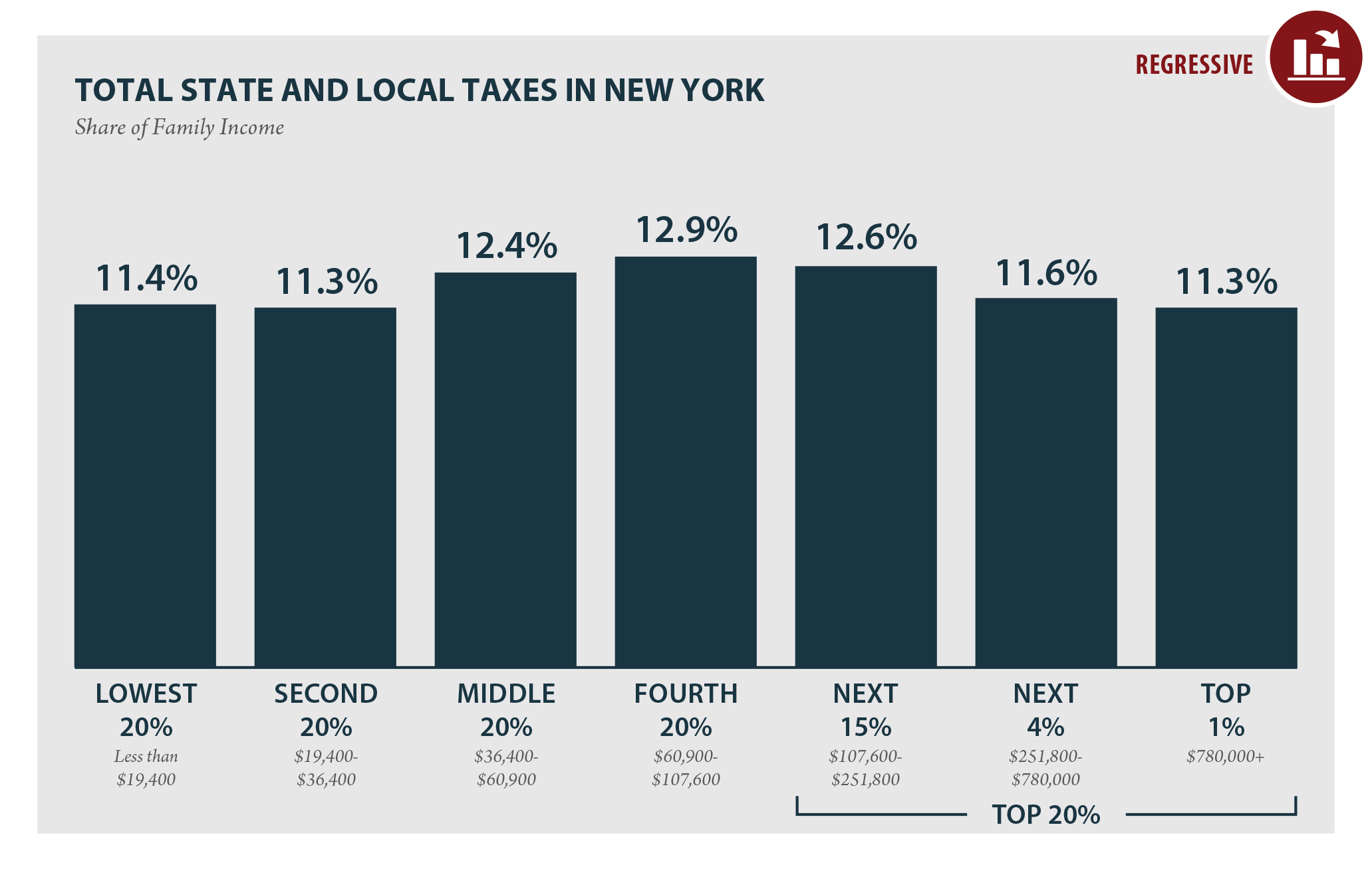Unveiling The Secrets Of Income Tax In New York State: A Comprehensive Guide
Apr 16 2025
Understanding income tax in New York State is essential for residents and businesses alike. The tax system in New York is complex, with various rules and regulations that can be challenging to navigate. Whether you're a first-time filer or a seasoned taxpayer, staying informed about the latest tax laws and rates is crucial. In this article, we will delve into the intricacies of New York's income tax system, providing you with actionable insights and expert advice to help you make informed decisions. From understanding the tax brackets to exploring deductions and credits, this guide will equip you with everything you need to know about income tax in New York State.
As a resident of New York State, you're likely aware of the importance of paying your income taxes correctly. However, many individuals and businesses find themselves overwhelmed by the complexities of the tax system. This article aims to simplify the process by breaking down the key components of income tax in New York State. By the end of this guide, you'll have a clear understanding of how the tax system works, what forms you need to file, and how to optimize your tax strategy for maximum savings.
Income tax in New York State is a significant financial obligation, and failing to comply with the regulations can result in penalties and interest charges. Therefore, it's vital to stay updated on the latest tax laws and seek professional advice if needed. In the following sections, we will explore the different aspects of income tax in New York State, including tax brackets, deductions, credits, and filing deadlines. Whether you're a resident or a business owner, this guide will provide you with the tools and knowledge to navigate the tax system effectively.
Read also:Wasmo Telegram Link 2024 Qoraal Your Ultimate Guide To Exploring The Latest Updates
What is the Current Income Tax Rate in New York State?
New York State imposes a progressive income tax system, meaning that the tax rate increases as your income rises. The current income tax rates in New York State range from 4% to 10.3%. The exact rate you pay depends on your taxable income and filing status. For example, single filers earning up to $8,500 pay a tax rate of 4%, while those earning over $250,000 pay a rate of 8.82%. Understanding these brackets is crucial for estimating your tax liability and planning your finances accordingly.
How Does New York State Calculate Income Tax?
New York State calculates income tax based on your adjusted gross income (AGI) and applicable deductions. The AGI is your total income minus certain deductions, such as contributions to retirement accounts and student loan interest. Once your AGI is determined, it is subjected to the state's progressive tax rates. Additionally, New York State offers various deductions and credits that can reduce your taxable income, ultimately lowering your tax liability. These include the New York State Earned Income Tax Credit (EITC) and the dependent care credit.
Can You Deduct State Income Tax on Your Federal Return?
Yes, you can deduct state income tax on your federal return, but there are limitations. The Tax Cuts and Jobs Act (TCJA) of 2017 introduced a cap on the state and local tax (SALT) deduction, limiting it to $10,000 per year. This cap applies to both state income tax and property tax combined. Therefore, if you pay more than $10,000 in state income tax and property tax, you cannot deduct the excess amount on your federal return. It's essential to consult with a tax professional to ensure you maximize your deductions while complying with the law.
What Are the Filing Deadlines for Income Tax in New York State?
The filing deadline for income tax in New York State is typically April 15th, aligning with the federal tax deadline. However, if April 15th falls on a weekend or holiday, the deadline may be extended to the next business day. It's crucial to file your tax return by the deadline to avoid penalties and interest charges. If you need more time to prepare your taxes, you can request an extension by filing Form IT-201. Keep in mind that an extension only grants additional time to file, not to pay any taxes owed.
Income Tax Brackets in New York State: What You Need to Know
New York State uses a progressive tax system, dividing taxpayers into different brackets based on their income levels. Each bracket is associated with a specific tax rate, ranging from 4% to 10.3%. Understanding these brackets is essential for estimating your tax liability and planning your finances effectively. For instance, if you're a single filer earning $50,000 per year, you would pay 4% on the first $8,500, 4.5% on the next $11,250, and so on, up to the highest applicable rate.
- Single filers earning up to $8,500 pay 4%.
- Single filers earning between $8,501 and $19,750 pay 4.5%.
- Single filers earning between $19,751 and $26,250 pay 5.25%.
What Are the Key Deductions for Income Tax in New York State?
New York State offers several deductions that can significantly reduce your taxable income. Some of the most common deductions include contributions to retirement accounts, student loan interest, and alimony payments. Additionally, New York State allows taxpayers to deduct certain medical expenses, mortgage interest, and charitable contributions. By taking advantage of these deductions, you can lower your tax liability and increase your take-home pay.
Read also:Discover The Enchanting Atmosphere Of St Burch Tavern
Is There a Credit for Income Tax in New York State?
Yes, New York State provides various credits to help taxpayers reduce their tax liability. One of the most popular credits is the New York State Earned Income Tax Credit (EITC), which is designed to assist low- and moderate-income working individuals and families. Other credits include the dependent care credit, child tax credit, and property tax credit. To qualify for these credits, you must meet specific eligibility requirements and file the appropriate forms.
How Can You Optimize Your Income Tax Strategy in New York State?
Optimizing your income tax strategy in New York State requires careful planning and attention to detail. Start by reviewing your income sources and estimating your taxable income for the year. Then, explore the available deductions and credits to determine which ones apply to your situation. Consider consulting with a tax professional to ensure you're taking full advantage of all possible tax-saving opportunities. Finally, keep accurate records of your income, expenses, and deductions throughout the year to simplify the filing process.
Understanding the Impact of Income Tax on New York State Residents
Income tax plays a vital role in funding essential services and infrastructure in New York State. The revenue generated from income tax supports public schools, healthcare facilities, transportation systems, and public safety initiatives. As a resident, paying your fair share of income tax ensures that these services remain available and accessible to all. Understanding the impact of income tax on your community can motivate you to comply with the regulations and contribute to the greater good.
What Are the Consequences of Not Paying Income Tax in New York State?
Failing to pay your income tax in New York State can result in severe consequences, including penalties, interest charges, and legal action. The New York State Department of Taxation and Finance is authorized to impose penalties for late filing and payment, as well as interest on unpaid taxes. In extreme cases, the department may issue a tax lien or levy against your assets to recover the owed amount. To avoid these repercussions, it's crucial to file your tax return on time and pay any taxes owed by the deadline.
Can You Appeal an Income Tax Decision in New York State?
Yes, you can appeal an income tax decision in New York State if you believe it was made in error or unfairly. The appeals process involves submitting a formal request to the New York State Department of Taxation and Finance, providing evidence to support your case. If your appeal is denied, you may have the option to pursue further legal action. It's advisable to consult with a tax attorney or professional to guide you through the appeals process and increase your chances of success.
What Resources Are Available for Understanding Income Tax in New York State?
New York State offers several resources to help taxpayers understand and comply with income tax regulations. The New York State Department of Taxation and Finance provides comprehensive guides, forms, and calculators on its website. Additionally, numerous tax professionals and organizations specialize in New York State tax law, offering personalized advice and assistance. By utilizing these resources, you can gain a deeper understanding of income tax in New York State and ensure compliance with the regulations.
Table of Contents
- What is the Current Income Tax Rate in New York State?
- How Does New York State Calculate Income Tax?
- Can You Deduct State Income Tax on Your Federal Return?
- What Are the Filing Deadlines for Income Tax in New York State?
- Income Tax Brackets in New York State: What You Need to Know
- What Are the Key Deductions for Income Tax in New York State?
- Is There a Credit for Income Tax in New York State?
- How Can You Optimize Your Income Tax Strategy in New York State?
- Understanding the Impact of Income Tax on New York State Residents
- What Are the Consequences of Not Paying Income Tax in New York State?
In conclusion, understanding income ta in new york state is crucial for residents and businesses to ensure compliance with tax laws and optimize financial planning. By exploring the various aspects of income tax, including brackets, deductions, and credits, you can make informed decisions and reduce your tax liability. Remember to stay updated on the latest regulations and seek professional advice when needed to navigate the complexities of New York State's tax system effectively.


